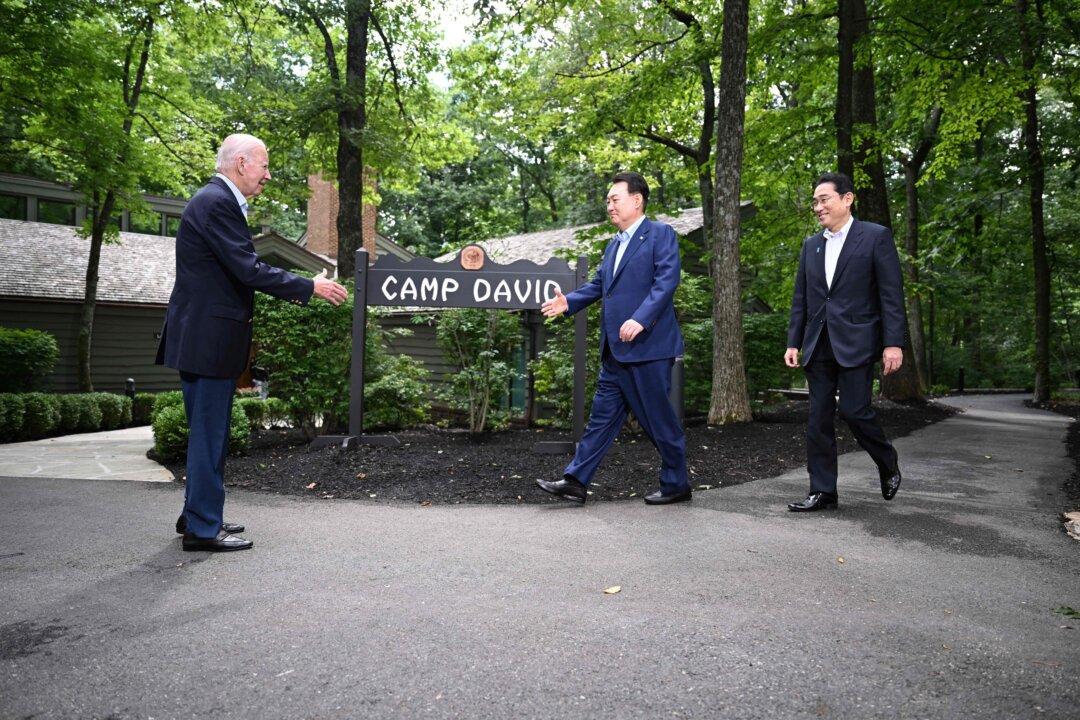Commentary
President Joe Biden invited two estranged allies, Japan and South Korea, on a camping trip. During their stay at Camp David, the presidential retreat in Catoctin Mountain Park, Maryland, the three leaders were all smiles for the cameras.

President Joe Biden invited two estranged allies, Japan and South Korea, on a camping trip. During their stay at Camp David, the presidential retreat in Catoctin Mountain Park, Maryland, the three leaders were all smiles for the cameras.